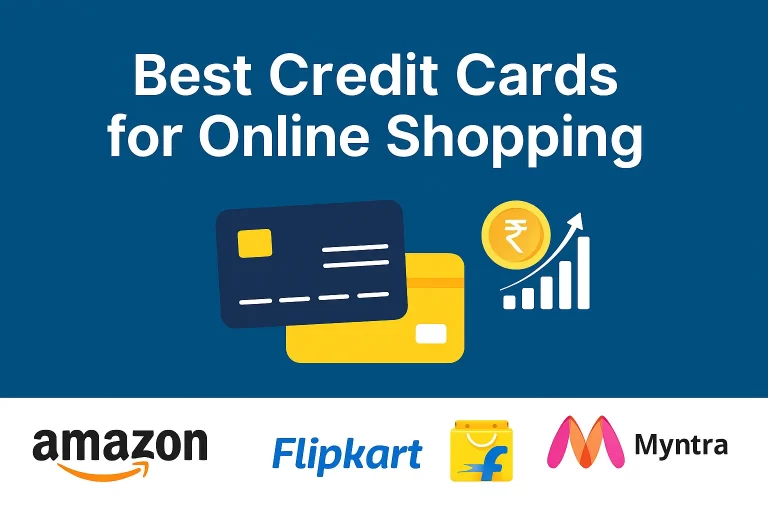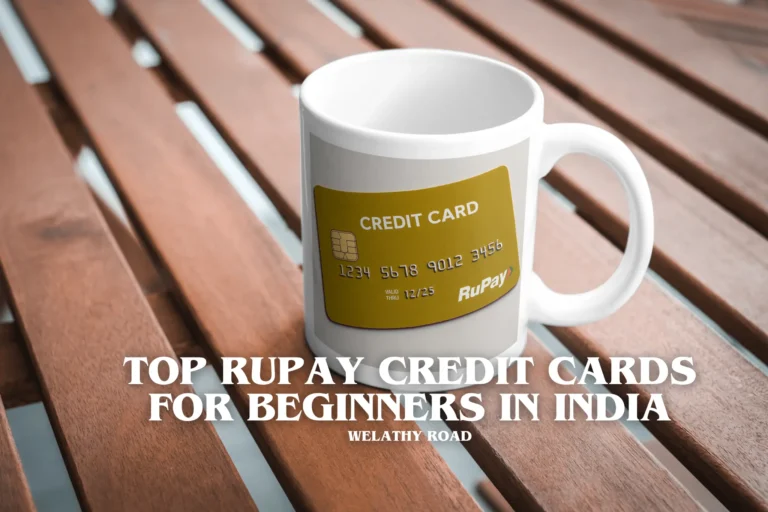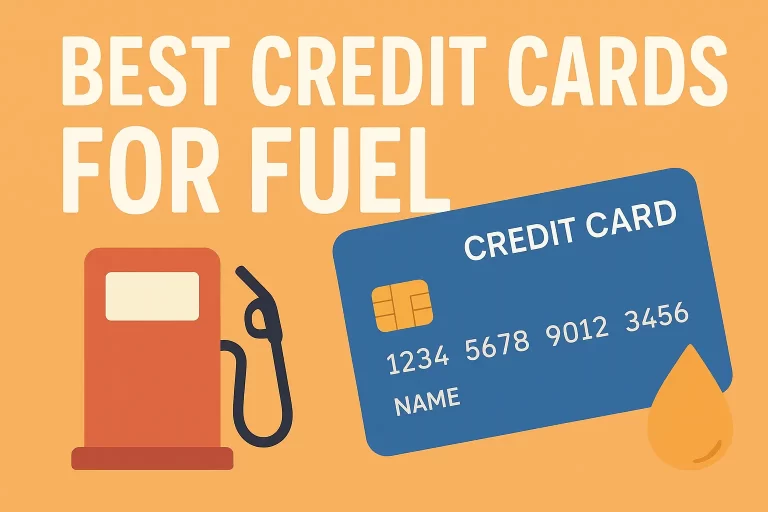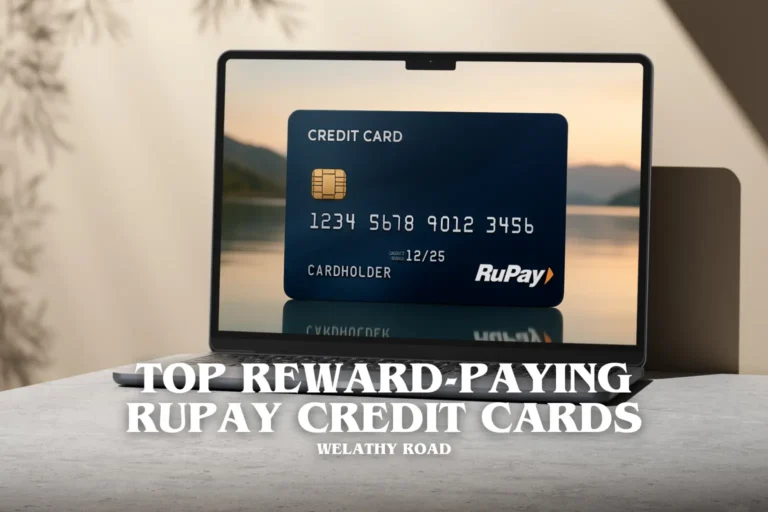1st Credit Card for Students in India 2025 (No Credit Score)

In this post, we will cover student-friendly credit cards that students, freelancers, and job seekers can apply for as their first credit card. We will focus on standard cards that also help in building credit history. This list is a narrowed-down version of my previous post, Best Credit Cards for Beginners, where I discussed FD-backed credit cards.
Struggle to get their 1st card (no income, no credit history).
Students generally don’t have any credit history because they haven’t taken any loan or credit card before, also they don’t have any income so their bank account usually dont provide them credit card by default but in order to generate credit history they need to start at one point.
Whenever students apply for top credit cards that offer good cashback and rewards, they often get rejected because lenders find no credit history. For banks, approving such applicants is risky — they have no proof that you can manage bills responsibly, so they prefer not to take that chance. You can find some ways to check your credit history here: How to Check Your Credit Score in India for Free
Ideally, most credit cards don’t ask for a payslip because they verify income through your credit history. But if you have no history, banks ask for extra documents like salary slips and bank statements — things students usually can’t provide. So, let’s talk about the solution now!
Add-on Cards: A Student Favorite (But Not Recommended)
When students start their credit journey, they often look for the easiest cards to get approved for. Banks and fintechs usually pitch a few options designed for beginners, but while these cards may seem convenient, they’re not always the best way to build your credit profile.
The most common one is Add-on cards (from parents)
However, I don’t recommend add-on card as your first credit card. These cards are useful only if you have no other choice. Our Aim is get your credit history built , so you can get top cashback card to save money and fix your finance. In this post, we’ll focus on the right first credit cards to apply for — and why starting with a regular bank credit card is much better than going for a co-branded one as a beginner.
Regular vs Co-brand Credit Cards
Regular credit cards are the ones you get directly from your bank, such as HDFC or SBI. These are issued and owned solely by the bank.
Co-brand credit cards are issued in partnership between a bank and a third-party company, like the Airtel Axis Card, Jupiter Card, or Tata Neu Card.
Co-Brand credit cards focus on one group of brand and hence they provide most discount on that brand, some of them I have included in post: Best Credit Card for Blinkit, Zepto, BigBasket & Offline Grocery Stores in India

I recommend choosing a regular bank card as your first credit card, since it helps build the foundation of your credit score and usually boosts it more effectively than a co-branded card.
1st Credit Card to Apply as Student/Freelancer- Recommendations
My advice: try to show some form of regular income. You can do small freelance gigs online or even set up a consistent monthly transfer (for 3+ months) that reflects as freelance income. This helps you qualify for a foundation credit card. Banks don’t usually issue cards to students because they want to see steady money flowing into your account — that reassures them you can pay your bills. Simple!
| Card / Bank | What’s Free & Key Perks | Conditions / Notes |
|---|---|---|
| Kotak 811 Freedom Credit Card Official Link 🔗 (Unsponsored) | Lifetime free, 4 reward points per ₹100 on online spends, 1% fuel surcharge waiver, interest-free cash withdrawal up to 48 days. | Requires Kotak 811 Zero Balance Savings Account. No income proof or credit score required. |
| Axis Bank Neo Credit Card Official Link 🔗 (Unsponsored) | Discounts on Zomato (40% off twice/month), Myntra, BookMyShow, Blinkit; rewards on spends. | Not always Lifetime Free — standard fee is ₹250 + GST (joining & annual). Sometimes issued as LTF via special offers. |
| SBI Unnati Credit Card Official Link 🔗 (Unsponsored) | No annual fee for 4 years, 1% fuel surcharge waiver, 1 RP per ₹100 spent, milestone cashback ₹500 on ₹50k annual spends. | FD-backed (minimum ₹25,000 FD in SBI). No credit history required. After 4 years, fee of ₹499/year applies. |
| ICICI Platinum Chip Credit Card Official Link 🔗 (Unsponsored) | No joining or annual fee (LTF variant). 2 RP per ₹100 retail, 1 RP on utilities/insurance, fuel surcharge waiver, dining discounts. | Income proof required (~₹20k/month). For salaried & self-employed (21–60 yrs). |
| Yes Bank Klick RuPay Credit Card Official Link 🔗 (Unsponsored) | Lifetime free, rewards on online/offline spends, fuel surcharge waiver. | Issued on RuPay platform. Conditions may vary; generally easier eligibility compared to premium cards. |
| IDFC FIRST EA₹N Credit Card Official Link 🔗 (Unsponsored) | Rewards on UPI spends (up to 1% cashback), lower rates (0.5%) on utilities/insurance. | Not LTF — fee ₹499 + GST. FD-backed (min FD ~₹5,000). No income proof required. |
| HDFC MoneyBack+ Credit Card Official Link 🔗 (Unsponsored) | CashPoints on spends (2 per ₹150), 10× on select partners, quarterly vouchers, fuel waiver. | Not LTF — fee ₹500 + GST; renewal waived on spends ≥ ₹50k/year. Requires income proof. |
Banks do offer some well-known cards to self-employed, freelancers, or even students with a good account balance. If you maintain a healthy bank balance for a few months before applying, your chances improve. Always check with your bank for eligibility and offers, it’s simple to give them a call or visit branch. If you are more interested in Rupay Cards, please read this post : No Credit Score? Top FD-Backed RuPay Credit Cards for Beginners
See you next time 👋
Getting your first credit card can feel tricky as a student or freelancer, but it doesn’t have to be. Banks need to see some form of income or account activity before approving a card — that’s why many applications get rejected. Options like FD-backed cards (Kotak 811 Dream Different, SBI Unnati) or LTF starter cards (ICICI Platinum Chip, Axis Neo via offer) are ideal for beginners.
Make a note:
- Start with a bank-branded card rather than a co-branded one to build your credit score.
- Maintain a steady account balance or small monthly income proof for easier approvals.
- Focus on Lifetime Free / zero-fee cards first to minimize costs while learning responsible credit usage.
- As a student, be careful not to make these mistakes: Top Mistakes Beginners Make with Their First Credit Card
With the right preparation, your first credit card can set a strong foundation for healthy credit history and open doors to better cards and rewards in the future.
Please let me know in the comments the first credit card you got as a student or freelancer, I will be happy to add that in my list. 🫡






